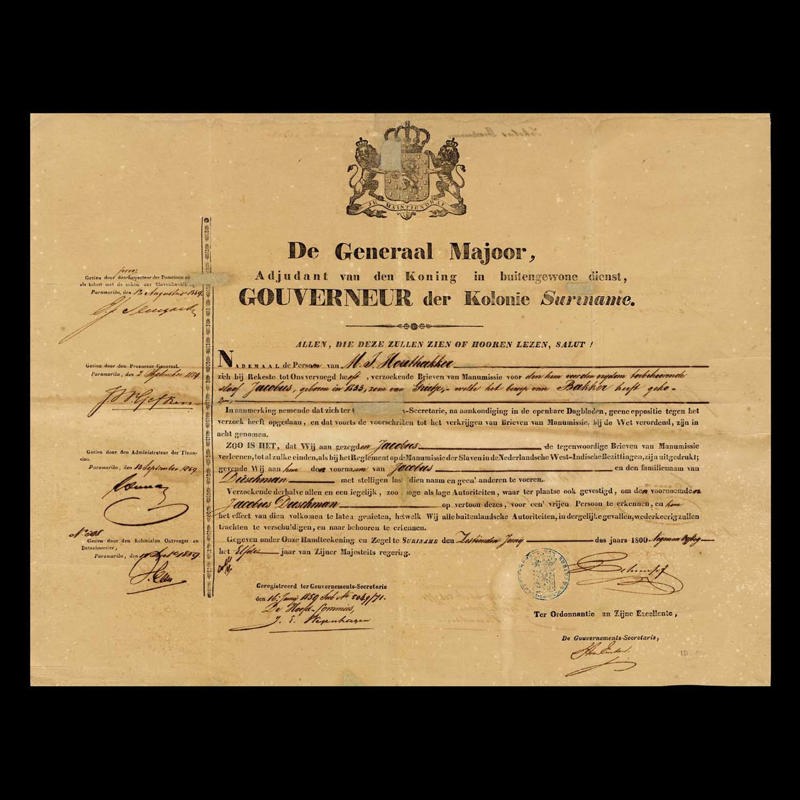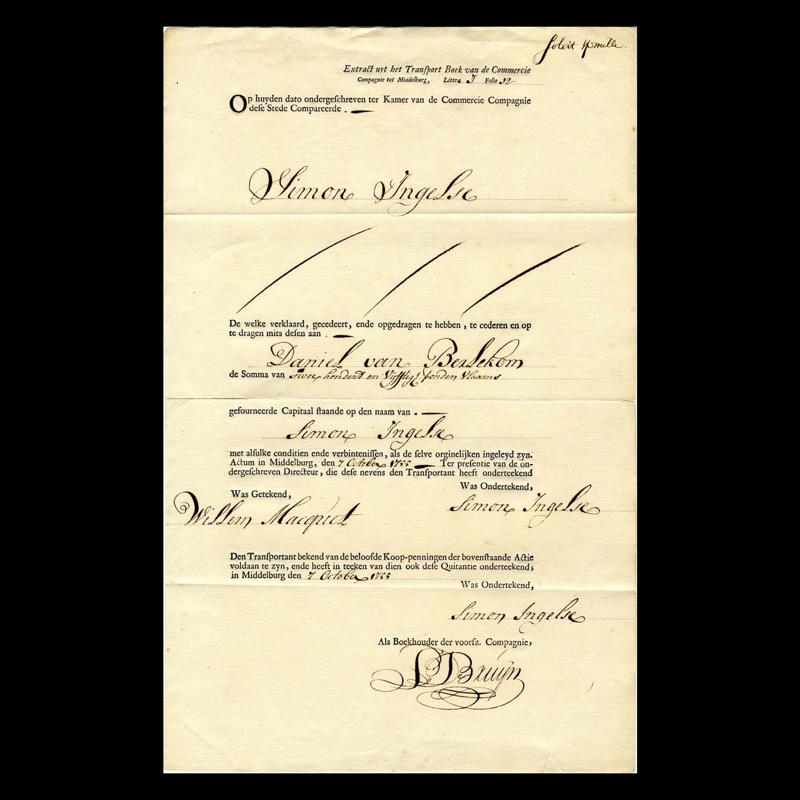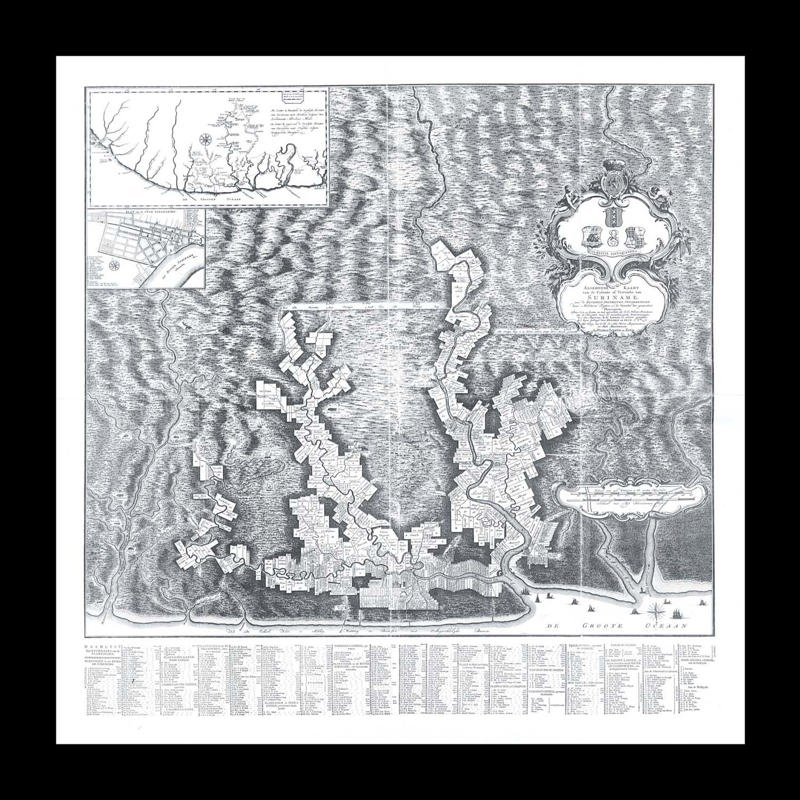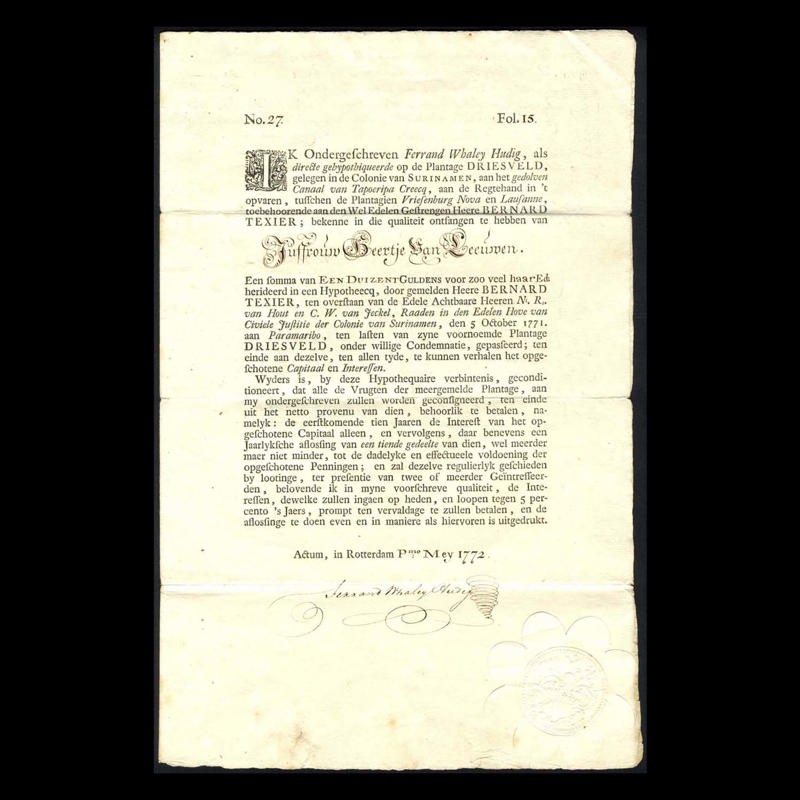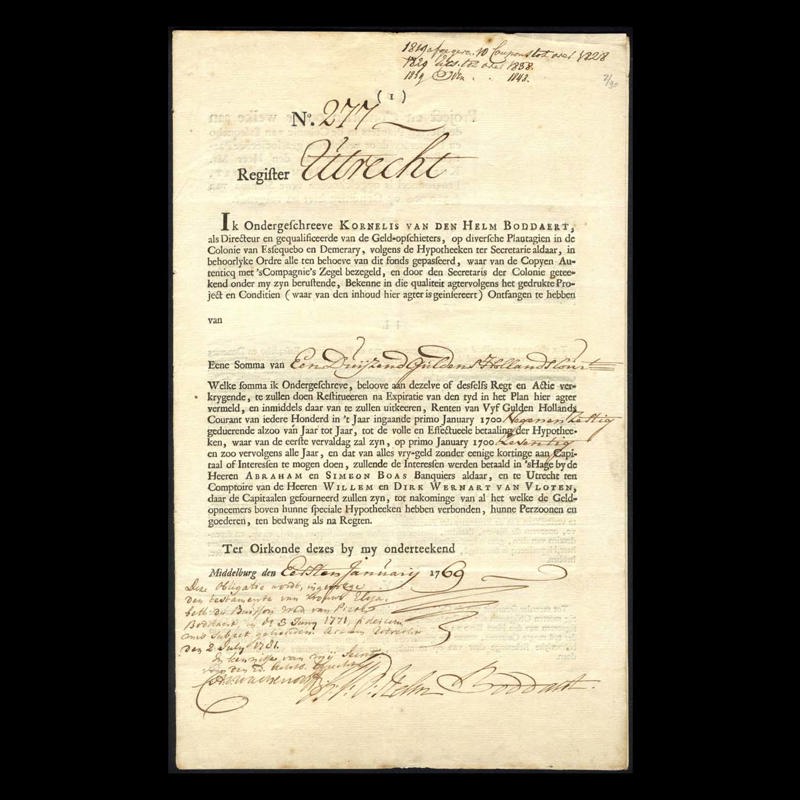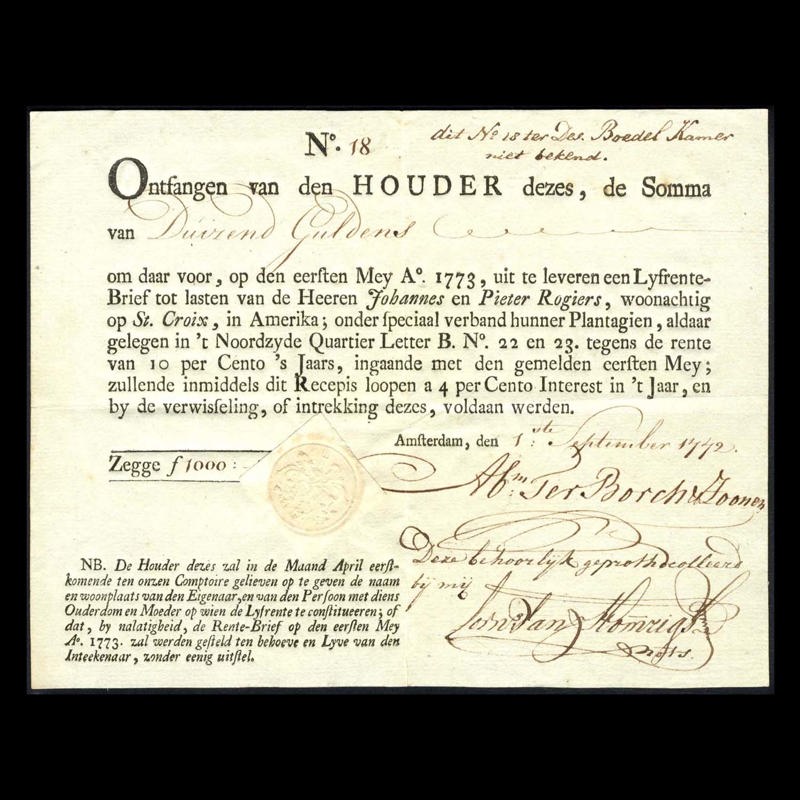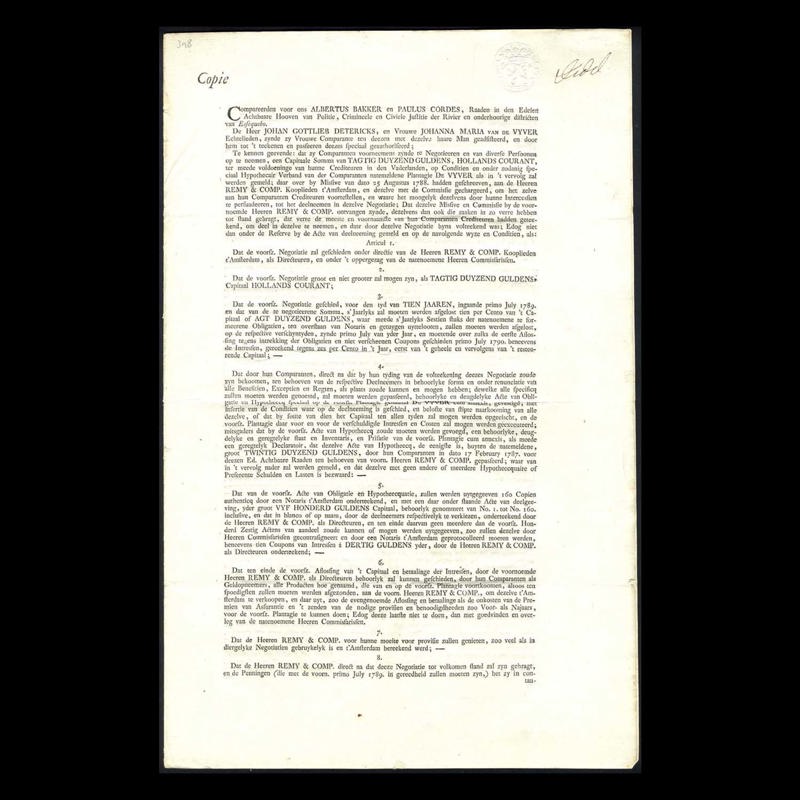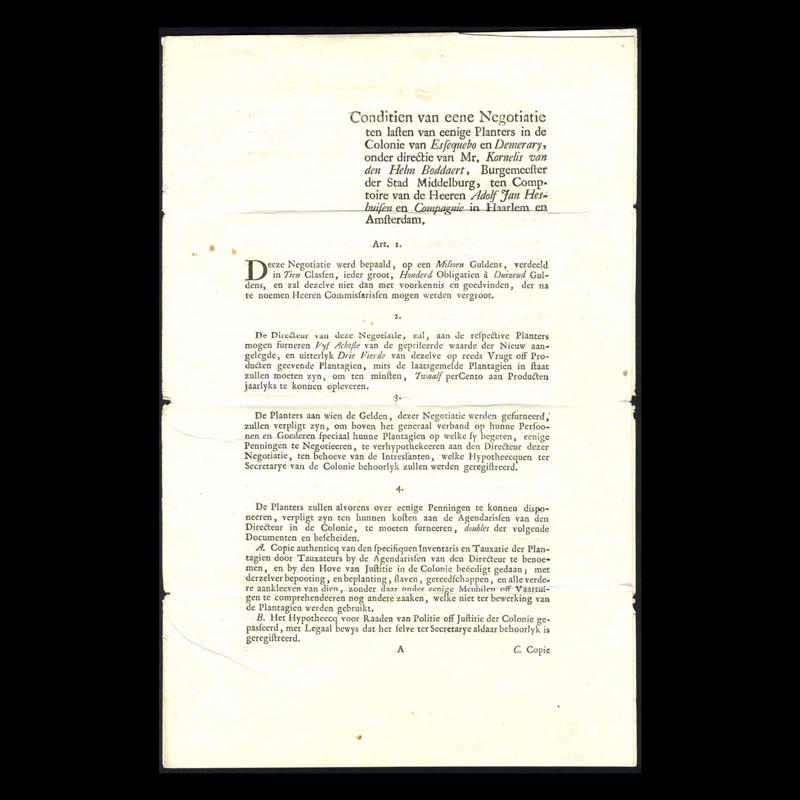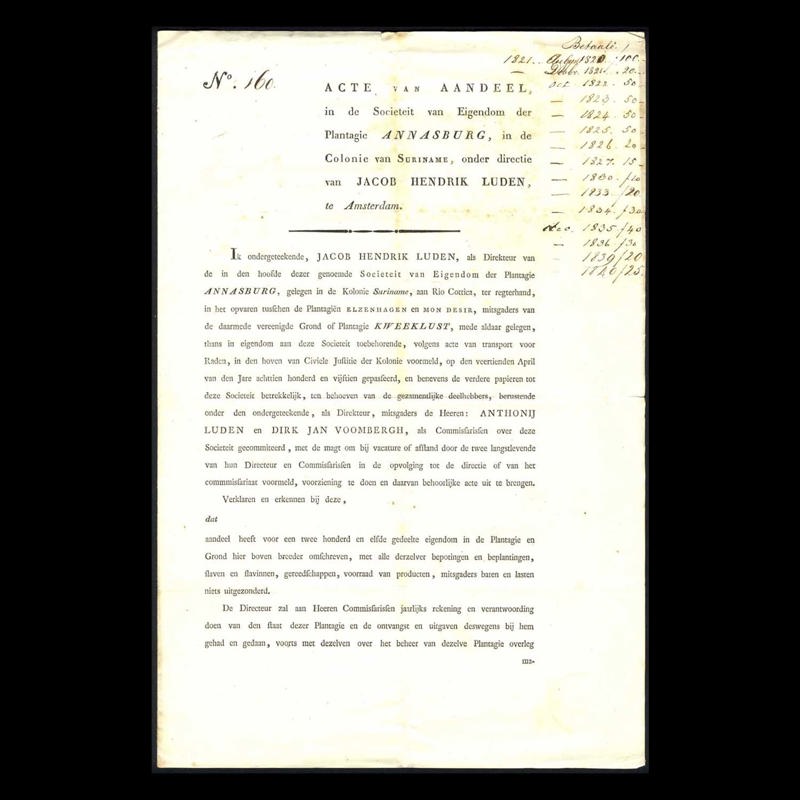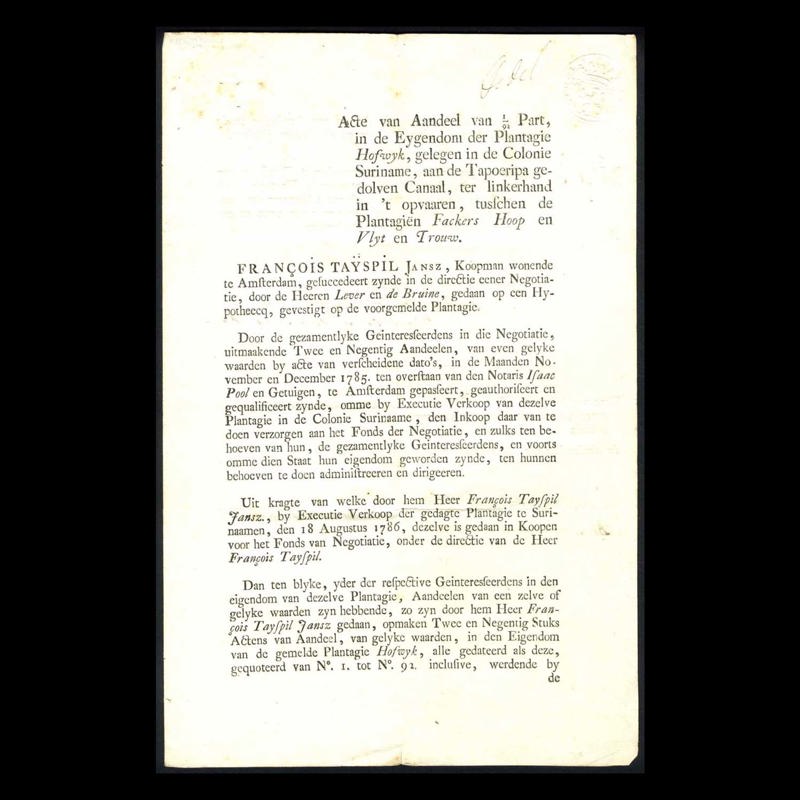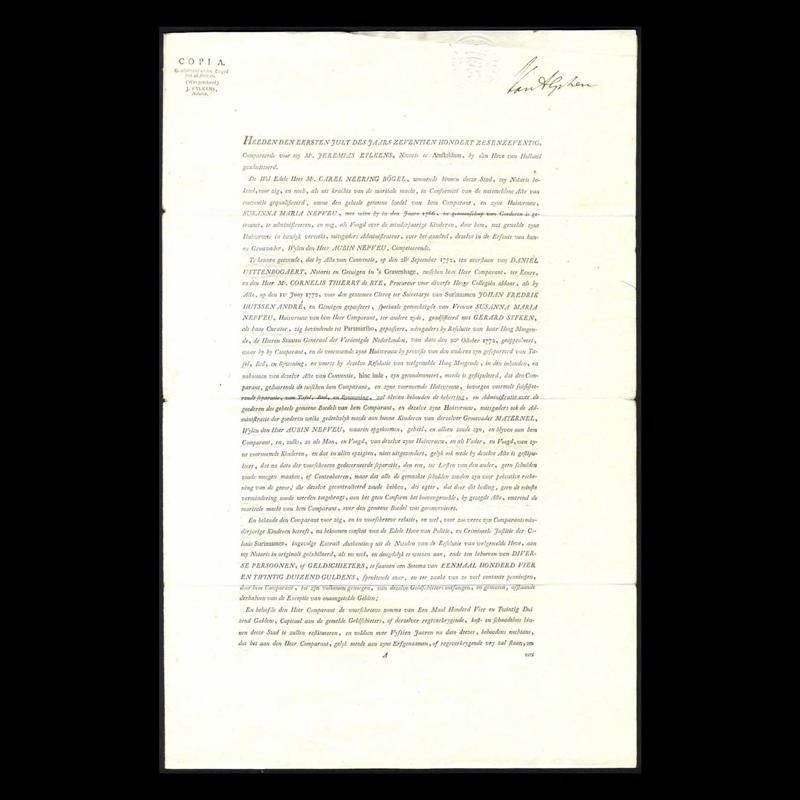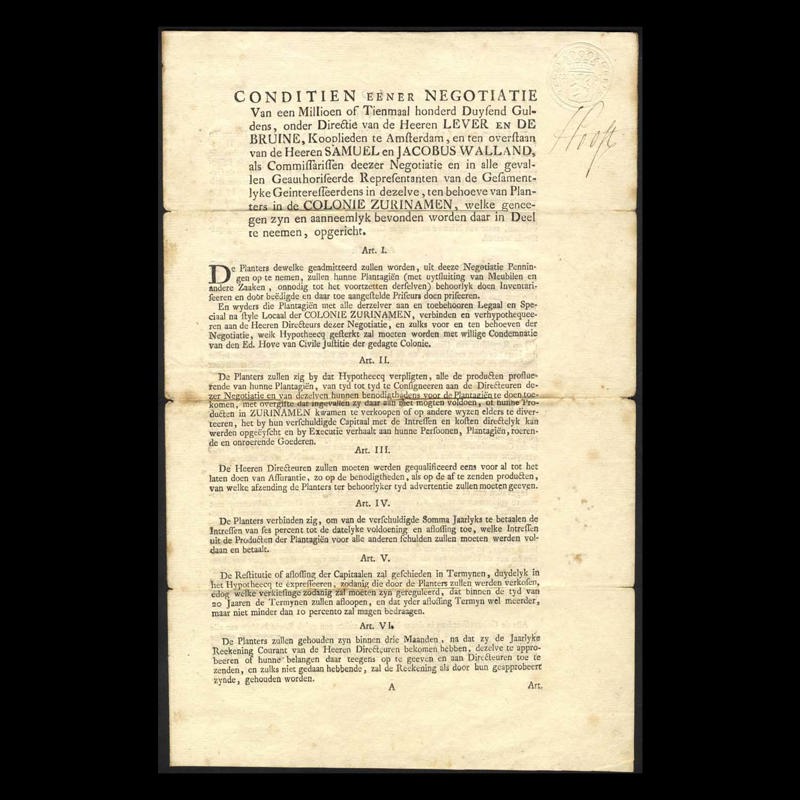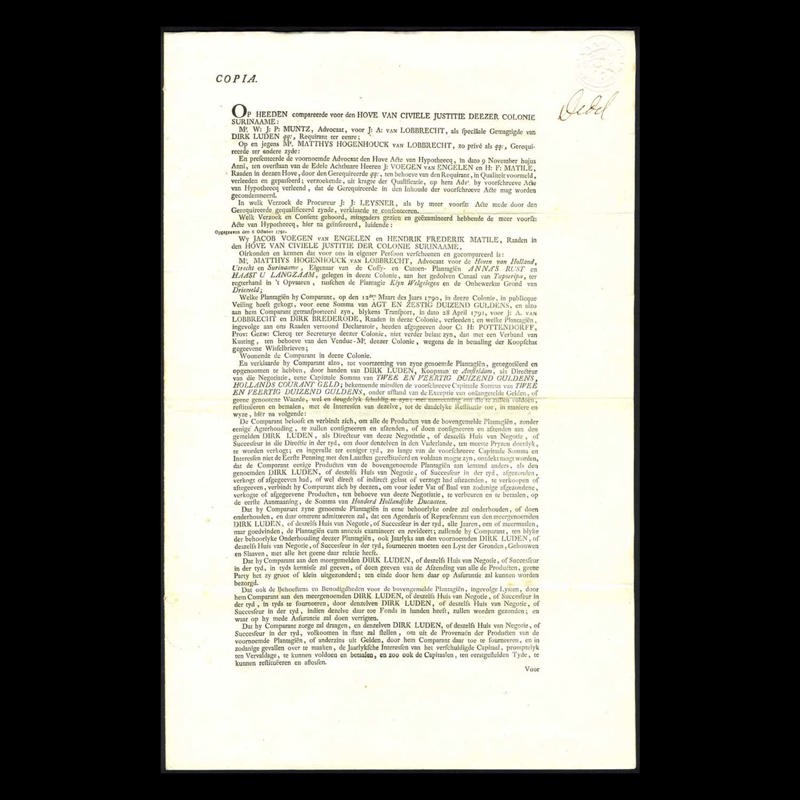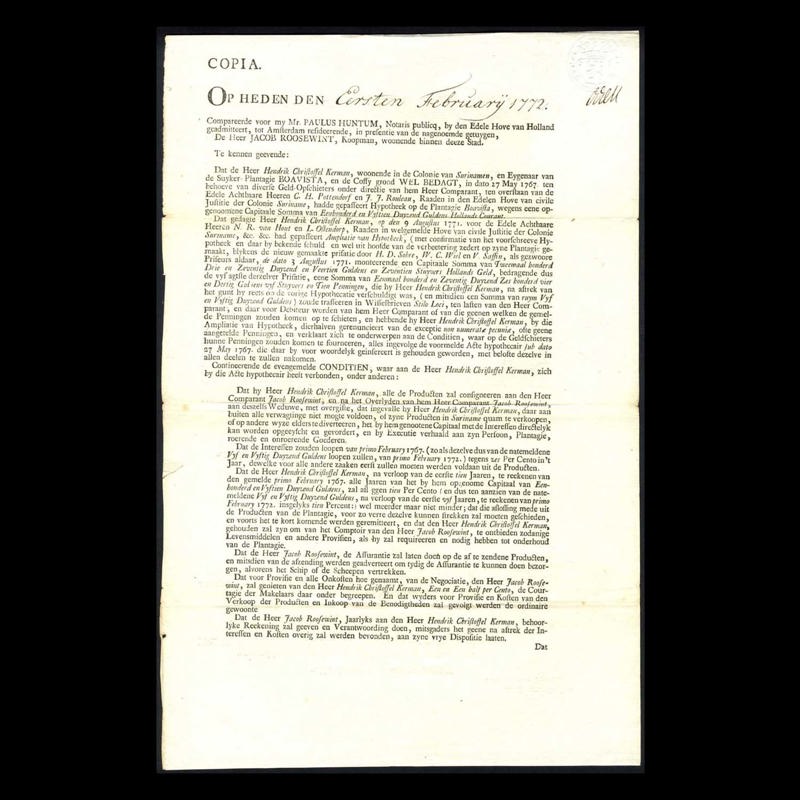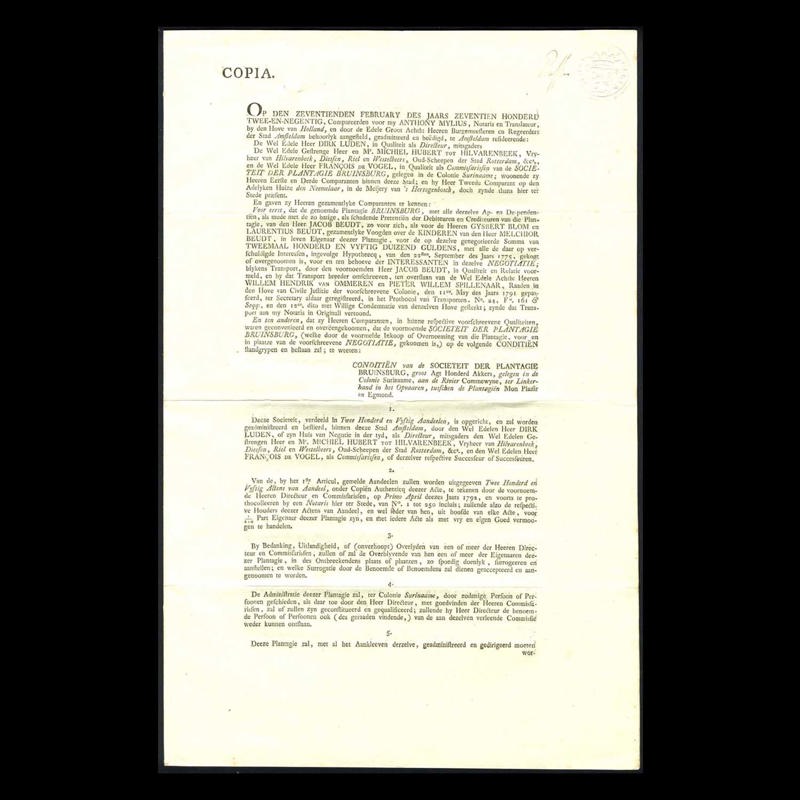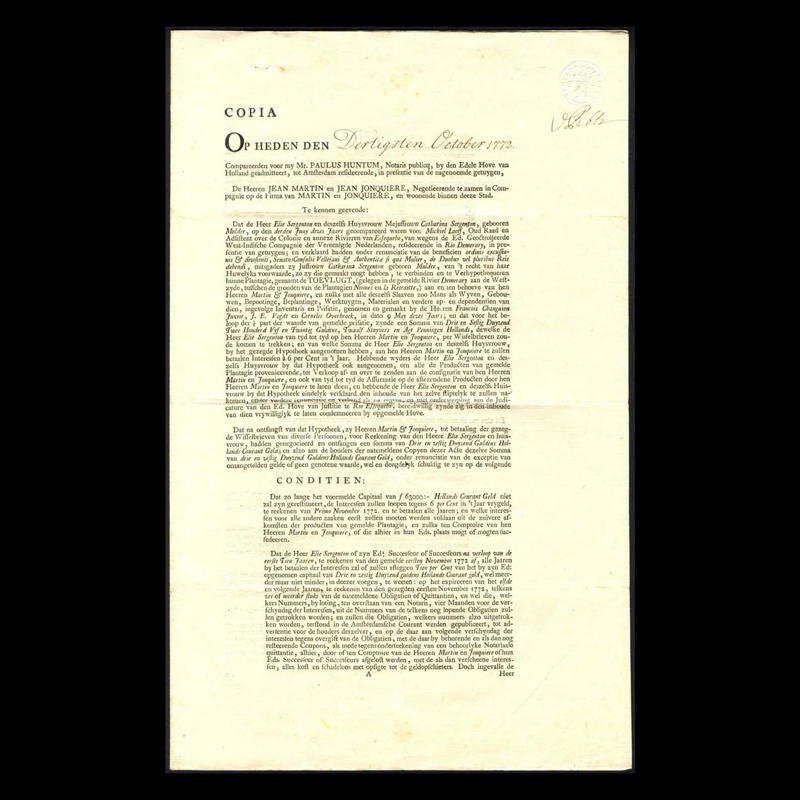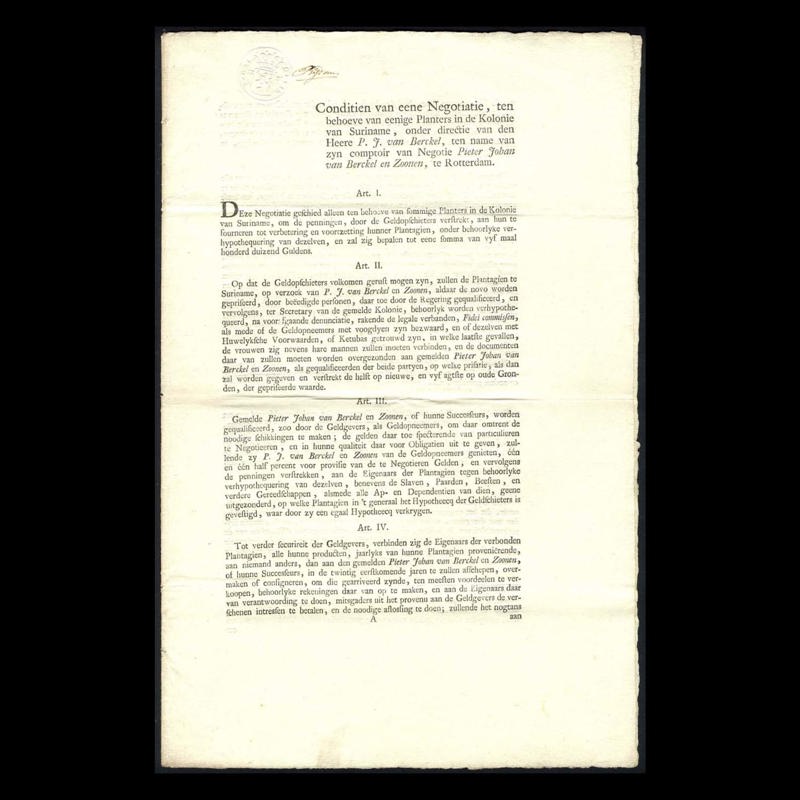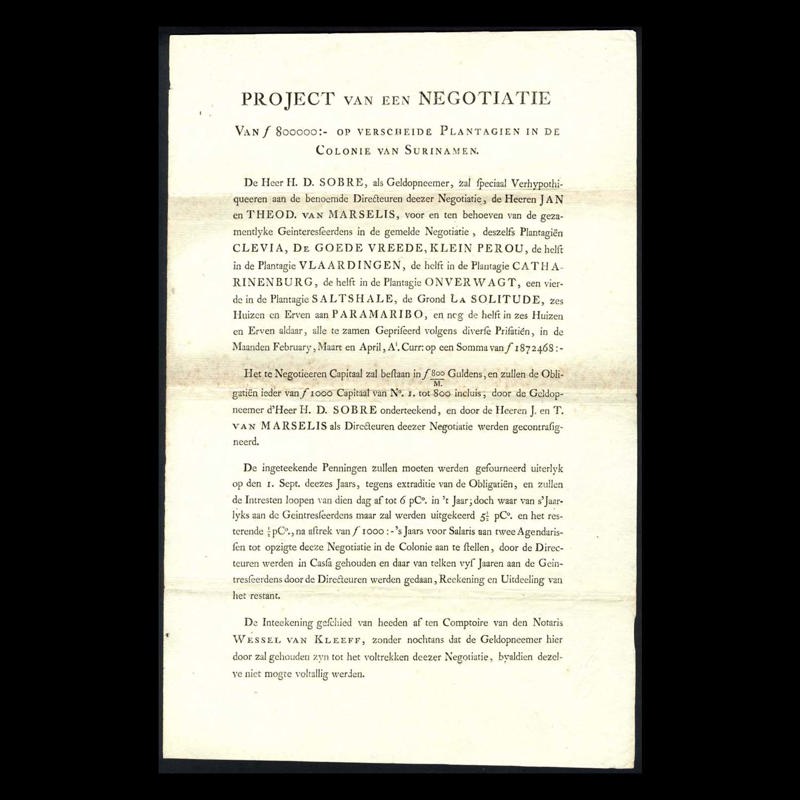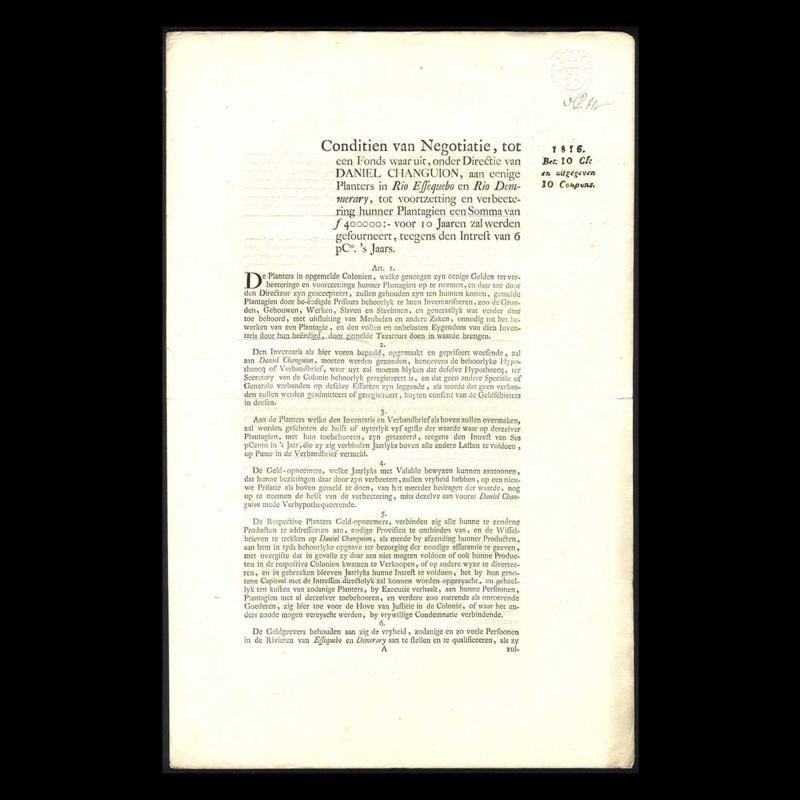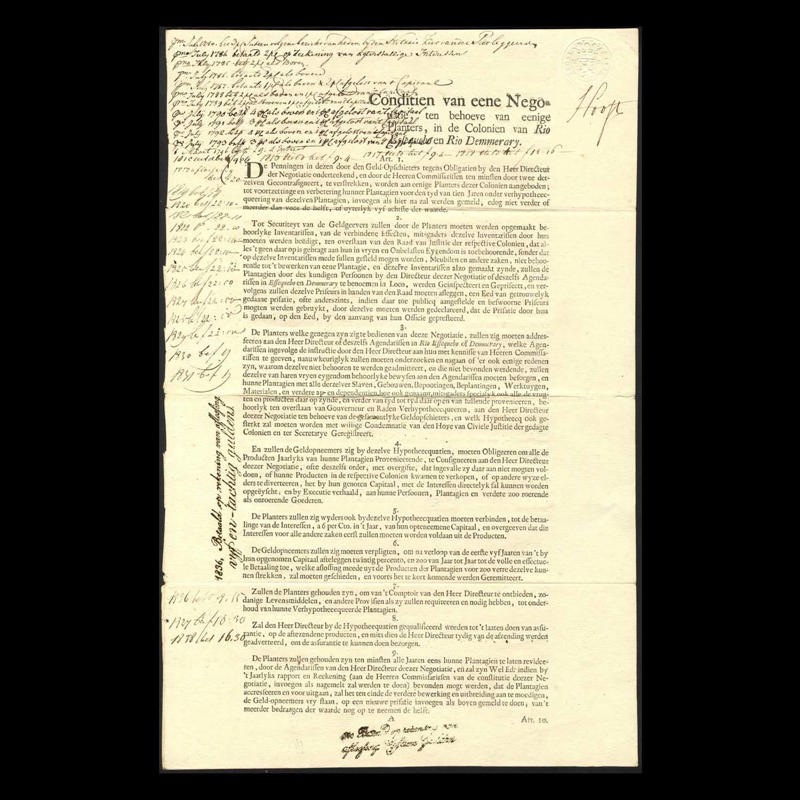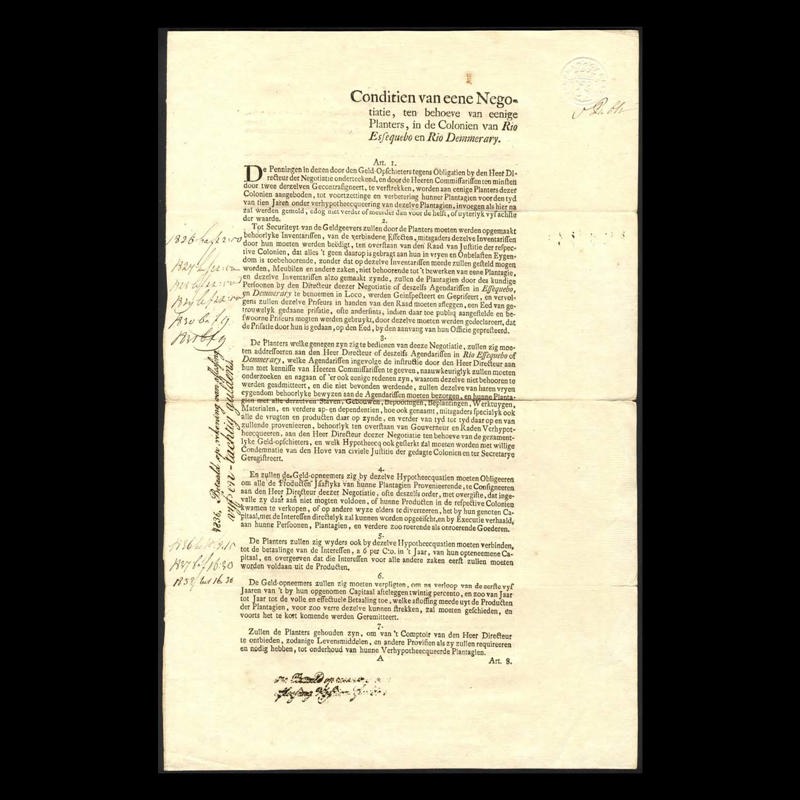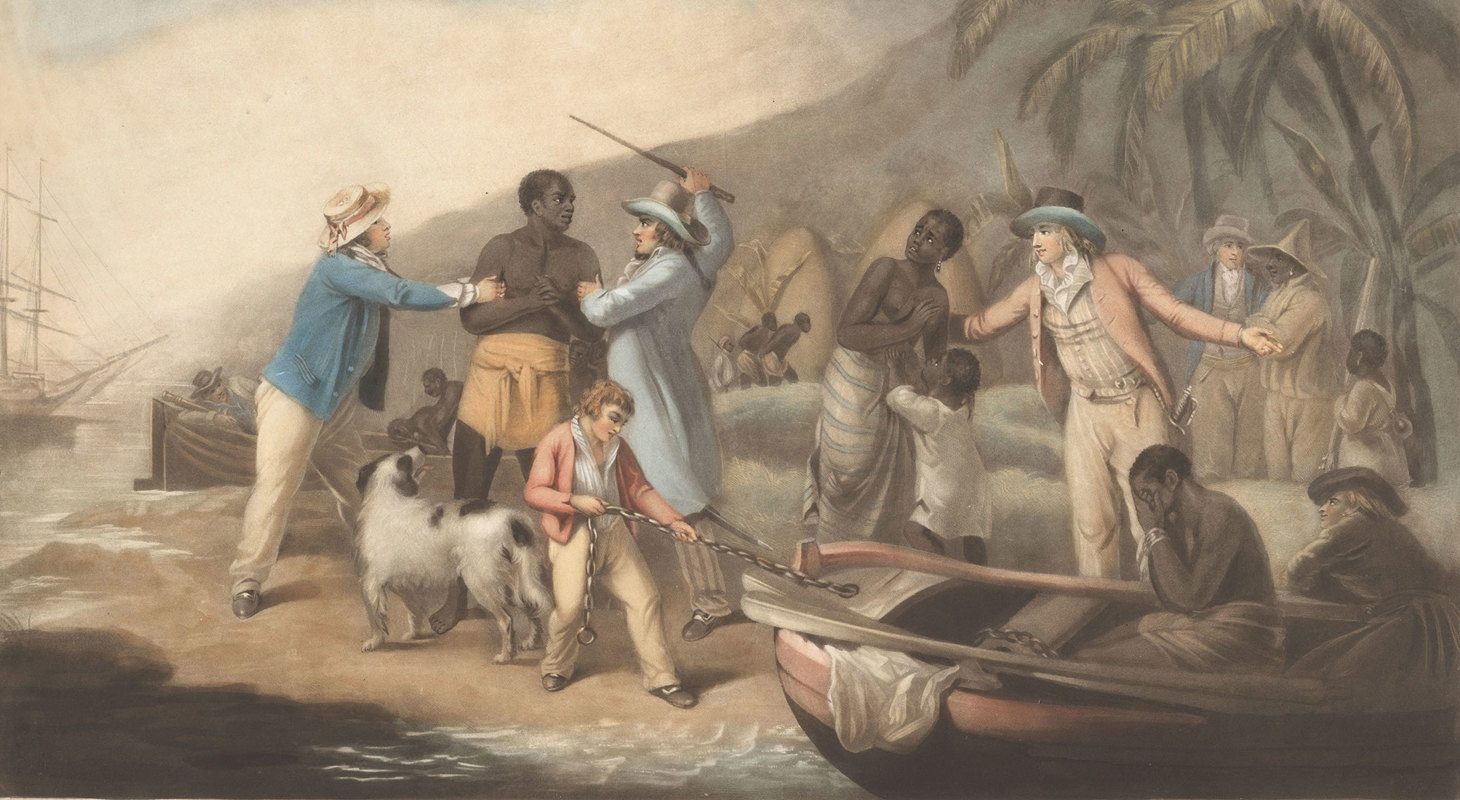
Collection: Slavery in Suriname
18th Century plantation loans and slavery documents
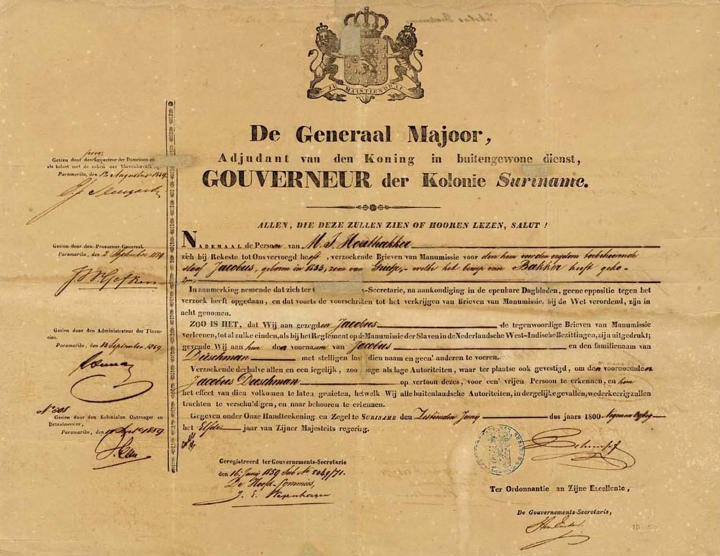
Collection description
Collection of 18 bonds from Surinam plantations between 1770 and 1820. The collection also includes a share in the "Commercie Compagnie" from Middelburg, Netherlands, a notorious slave trader, a Manumission document, granting freedom to the slave Johannes and his surname Duschman and a copy of the map: "Algemeene Kaart van de Colonie of Provintie SURINAME met de rivieren, districten, ontdekkingen door militaite togten en de grootte der gemeeten Plantagiën" (General Map of the Colony or Province SURINAME with rivers, districts, discoveries through military expeditions, and the size of surveyed plantations). An important collection about slavery in Suriname.
This collection can be viewed in Eindhoven, the Netherlands.
Price: 20,000.00 Euros.
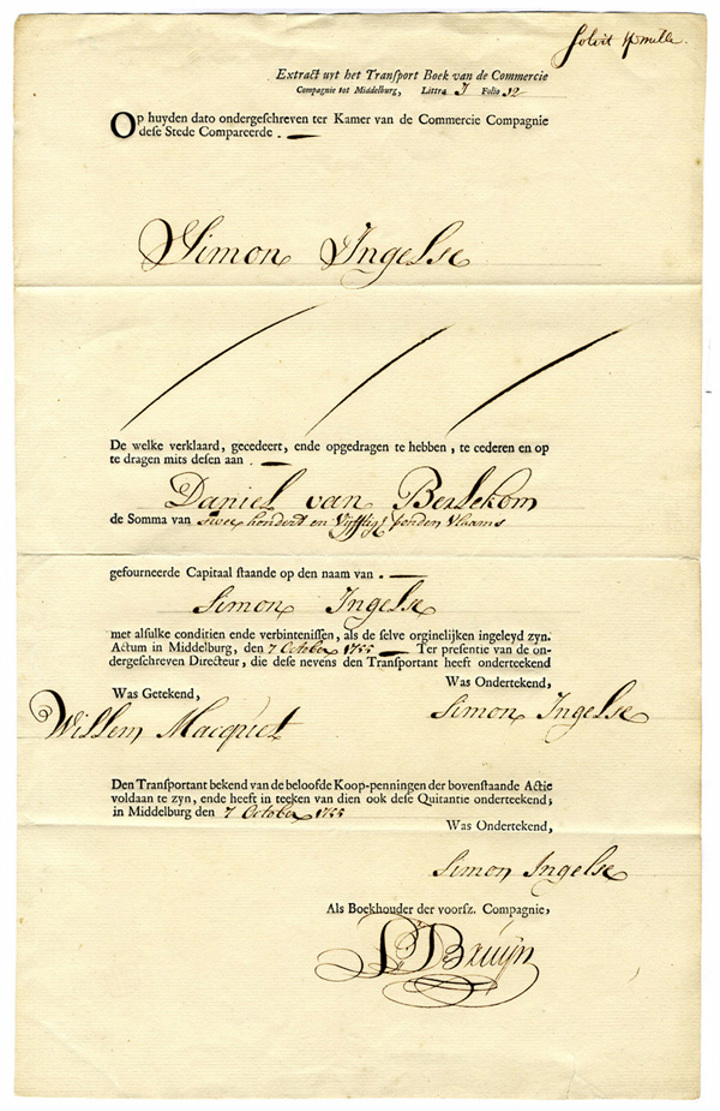
History of the Commercie Compagnie
The history of Dutch plantations in Suriname is closely intertwined with the role of the Commercie Compagnie in Middelburg, Netherlands. The Commercie Compagnie was a trading company established in 1720 by wealthy Dutch merchants from the province of Zeeland. The company primarily focused on trade with the West Indian colonies, including Suriname, Curaçao, and Sint Eustatius.
The Commercie Compagnie began its activities in Suriname in 1730 when it signed a contract with the colonial government to obtain a monopoly on the trade of sugar, tobacco, coffee, and cocoa. This monopoly granted the Commercie Compagnie immense power over the economy of Suriname.
The plantations in Suriname were the primary source of these commodities, and the Commercie Compagnie had a significant influence on the plantation economy. To meet the demand for these products, thousands of African slaves were brought to Suriname to work forcibly on the plantations.
The Commercie Compagnie played a significant role in the slave trade and profited from it. The company was involved in the purchase of slaves in Africa and their transportation to Suriname. The slaves were then sold to plantation owners who relied on slave labor for their operations.
However, the Commercie Compagnie not only had a crucial economic role but also became notorious for the abuses on the plantations. There were countless cases of cruelty and mistreatment of slaves who had to work under terrible conditions. These abuses led to criticism of the Commercie Compagnie.
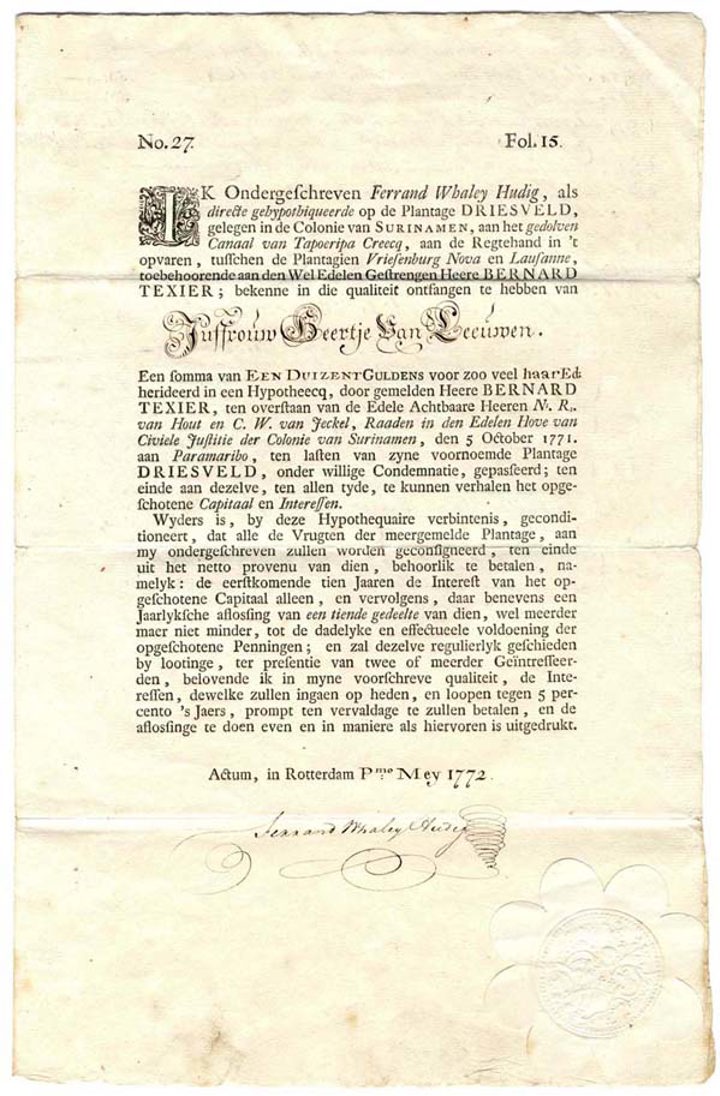
The Dutch government was forced to intervene and decided to dissolve the Commercie Compagnie in 1791, transferring the trade with Suriname to the Society of Suriname, also known as the Society for the Exploitation of the Colony of Suriname.
However, the abolition of the Commercie Compagnie did not mean the end of Dutch plantations in Suriname. The plantation economy remained an important source of income for Suriname and the Netherlands. After the abolition of slavery in 1863, former slaves were forced to work on the plantations for another ten years for low wages.
The history of Dutch plantations in Suriname and the role of the Commercie Compagnie in it is a painful and controversial part of Dutch colonial history. The plantations were based on slavery and exploitation, and the Commercie Compagnie played a significant role in this. The company contributed to the prosperity of the Netherlands, but this prosperity was built on the backs of enslaved people.
Request a viewing
Buy this collection?
Collectweb is the online platform for unique collections. We provide new and experienced collectors with a place where expert-selected collectibles can be easily discovered, bought, and sold. With over 100,000 unique pieces, we help you find the perfect addition to your collection.
In a collection, you encounter many stories. That's precisely why something is worth preserving. At Collectweb, we live to tell these stories. By doing so, we not only convey the background of an item but also share the interest and passion that accompany the story. This way, collectibles remain significant and valuable in their own way for generations to come.
In today's financial markets, a collection is an excellent way to diversify an investment portfolio. A rare collection holds its value and has the potential to become more valuable over the years.
This collection can be viewed in Eindhoven, the Netherlands.
Please fill in your details below, and we will contact you as soon as possible to schedule an appointment.

